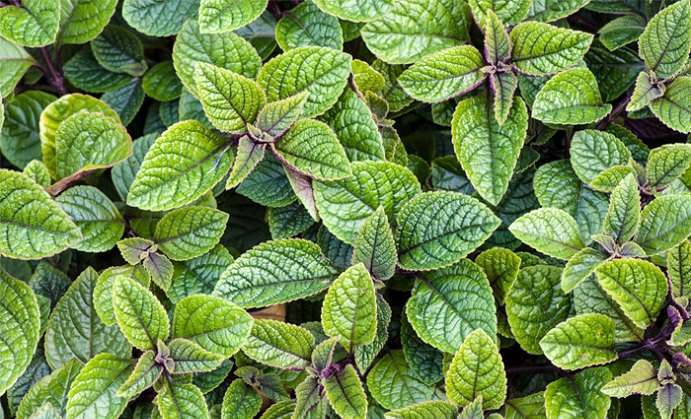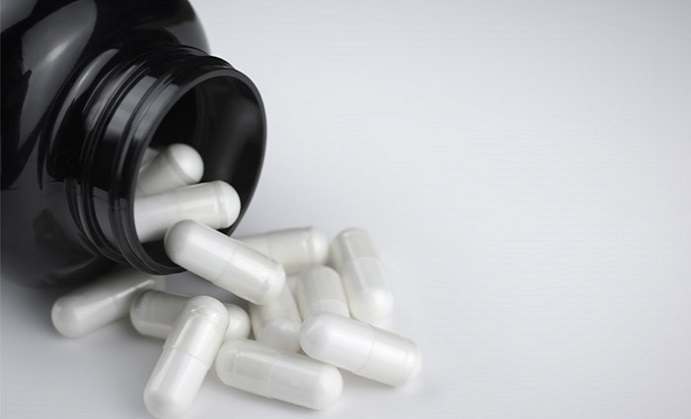More than half of all adults in first world countries are overweight. This means that there is no shortage of people trying to lose weight. I am one of them. At first, I had a tendency to try every weight loss supplement that showed up on infomercials, the display at the grocery store, and even in my inbox! Soon enough experience showed me that most weight loss supplements aren’t what they are portrayed to be. Time taught me the wisdom of being skeptical, and I imagine that it has taught others as well.
I now research weight loss aids before handing over my money for them, and today I am going to gather information about Forskolin. You are welcome to join me!
Plectranthus Barbatus and the History of Forskolin
 Forskolin is the popular name for labdane diterpene extracted from Plectranthus barbatus plants. Before I explain about labdane diterpene, though, let me tell you just a little about the plants. Plants of the Plectranthus family grow around the world in humid subtropical climates, which includes South American countries and certain parts of Africa and India. These plants also go by the name Coleus forskohlii and are characterized by aggressive growth, woody stems and wide velvet leaves. Coleus forskohlii plants are prized in ancient India as a medicinal herb. Ayurvedic practitioners prescribed their roots and leaves to dilate the airways of those suffering from asthma and to calm muscle spasms during convulsions. This primitive form of Forskolin made by crushing or grinding the forskohlii plant was also thought to be effective for coronary disease and bacterial infections.
Forskolin is the popular name for labdane diterpene extracted from Plectranthus barbatus plants. Before I explain about labdane diterpene, though, let me tell you just a little about the plants. Plants of the Plectranthus family grow around the world in humid subtropical climates, which includes South American countries and certain parts of Africa and India. These plants also go by the name Coleus forskohlii and are characterized by aggressive growth, woody stems and wide velvet leaves. Coleus forskohlii plants are prized in ancient India as a medicinal herb. Ayurvedic practitioners prescribed their roots and leaves to dilate the airways of those suffering from asthma and to calm muscle spasms during convulsions. This primitive form of Forskolin made by crushing or grinding the forskohlii plant was also thought to be effective for coronary disease and bacterial infections.
In South America, Coleus forskohlii has such a well established reputation for easing digestive complaints that it is grown in backyards. Anytime someone is suffering from a hangover, bloated stomach or irritated liver, the bitter leaves can be easily picked and eaten raw or simmered to make to make a soothing tea.
Forskolin and Weight Loss
 Although Coleus forskohlii has been improving quality of life for centuries, only recently have we discovered that its benefits stem from an active chemical compound called labdane diterpene. This active compound proved itself useful to scientist studying cellular physiology, and soon there were laboratories extracting the compound and selling it for scientific use under the name Forskolin. Since then, Forskolin has entered the world of weight loss supplements and is making a name for itself. Labdane diterpene stimulates an enzyme called adenylyl cyclase, which in turn increases the level of cyclic AMP (cAMP). Cyclic AMP is vital to all our cells. Without it, our cells can not communicate efficiently or react properly to hormones. By taking a Forskolin supplement and increasing cAMP, we improve the efficiency of various biochemical activities, including lypolisis or the burning of fat.
Although Coleus forskohlii has been improving quality of life for centuries, only recently have we discovered that its benefits stem from an active chemical compound called labdane diterpene. This active compound proved itself useful to scientist studying cellular physiology, and soon there were laboratories extracting the compound and selling it for scientific use under the name Forskolin. Since then, Forskolin has entered the world of weight loss supplements and is making a name for itself. Labdane diterpene stimulates an enzyme called adenylyl cyclase, which in turn increases the level of cyclic AMP (cAMP). Cyclic AMP is vital to all our cells. Without it, our cells can not communicate efficiently or react properly to hormones. By taking a Forskolin supplement and increasing cAMP, we improve the efficiency of various biochemical activities, including lypolisis or the burning of fat.
Supporting Evidence
 Forskolin is still in the process of being studied, but there is concrete evidence that Forskolin activates adenylyl cyclase, increases the intracellular concentration of cAmp, inhibits glucose transporters and in some cases works as a vasodilator and smooth muscle relaxant. Only a few clinical trials have been done to date. These effectively proved that both men an women who took Forskolin for three months, while following a low calorie diet and daily exercise program, lost weight and gained lean muscle mass.
Forskolin is still in the process of being studied, but there is concrete evidence that Forskolin activates adenylyl cyclase, increases the intracellular concentration of cAmp, inhibits glucose transporters and in some cases works as a vasodilator and smooth muscle relaxant. Only a few clinical trials have been done to date. These effectively proved that both men an women who took Forskolin for three months, while following a low calorie diet and daily exercise program, lost weight and gained lean muscle mass.
Forskolin’s Side Effects
Forskolin has no known side effects, but be sure to follow your doctor’s instructions or the manufacturer’s instructions as you take it. If you are being treated for a chronic condition, such as diabetes or hypertension, or are taking prescription medications, it is especially important that you speak with your doctor before taking Forskolin. Women who are pregnant, may become pregnant or are breastfeeding should avoid Forskolin altogether.
Do you want to find an effective Forskolin supplement? Check out our top rated Forskolin products











